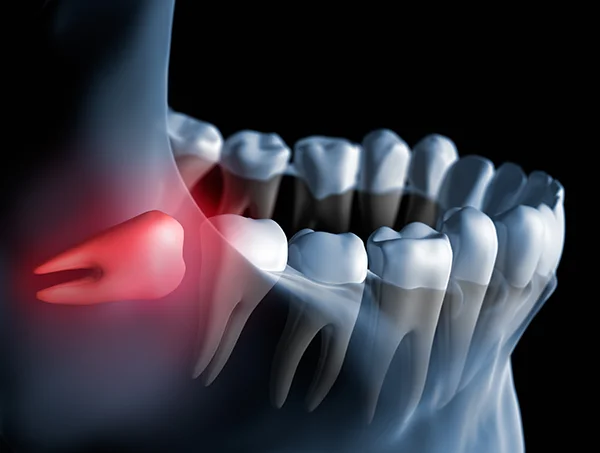Knowing When to Extract Wisdom Teeth and When Not To is Our Job
Posted on 11/15/2024 by Young Jun DDS MD FACS |
 Wisdom teeth are the last teeth to erupt, usually appearing in your late teens or early twenties. Wisdom teeth are the last teeth to erupt, usually appearing in your late teens or early twenties.
They are located at the back of your mouth, behind your other molars.
While some people have wisdom teeth that erupt without any problems, others experience complications that require extraction.
As an experienced oral surgeon, I understand the concerns you may have about wisdom teeth and I'm here to help you navigate this decision.
Why Wisdom Teeth Might Need to be Extracted
There are several reasons why wisdom teeth might need to be extracted:
| • |
Impaction: This is the most common reason for wisdom teeth extraction. Impacted wisdom teeth are those that are unable to fully erupt through the gums because they are blocked by other teeth, bone, or tissue. This can lead to pain, infection, and damage to surrounding teeth.
|
| • |
Crowding: Sometimes, there isn't enough space in the jaw for wisdom teeth to erupt properly. This crowding can cause other teeth to become misaligned, leading to problems with biting and chewing.
|
| • |
Cysts and Tumors: In rare cases, wisdom teeth can contribute to the development of cysts or tumors in the jaw. These can cause significant damage to the surrounding bone and teeth.
|
| • |
Infection: If a wisdom tooth becomes infected, it can cause pain, swelling, and difficulty opening the mouth. In some cases, the infection can spread to other parts of the head and neck. |
When Wisdom Teeth Don't Need to be Extracted
Not all wisdom teeth need to be extracted. If your wisdom teeth are healthy, fully erupted, and not causing any problems, they can be left alone. However, it's important to have them checked regularly by your dentist or oral surgeon to monitor their condition.
The Importance of Early Assessment
The best time to assess wisdom teeth is in the mid-teenage years. An X-ray can help us determine the position of your wisdom teeth and identify any potential problems.
Early intervention can help prevent complications and make the extraction process simpler.
What to Expect During Wisdom Teeth Extraction
Wisdom teeth extraction is typically an outpatient procedure performed under local anesthesia or IV sedation. The process involves removing the tooth or teeth and then closing the extraction site with sutures.
After the procedure, you may experience some pain and swelling, which can be managed with medication.
Oral Care After Wisdom Teeth Extraction
Following wisdom teeth extraction, it's important to follow your oral surgeon's instructions carefully. This will help promote healing and prevent complications.
Here are some general tips for post-extraction care:
| • |
Rest: Avoid strenuous activity for the first few days after surgery. |
| • |
Ice Therapy: Apply an ice pack to your face to reduce swelling. |
| • |
Diet: Start with soft foods and gradually progress to a normal diet as tolerated. |
| • |
Oral Hygiene: Brush and floss your teeth regularly, avoiding the extraction site for the first few days. |
| • |
Medications: Take all prescribed medications as directed. |
Conclusion
Wisdom teeth extraction is a common procedure that can be performed safely and effectively. By understanding the reasons for extraction and the importance of early assessment, you can make informed decisions about your oral health.
If you have concerns about your wisdom teeth, please don't hesitate to talk to your dentist or oral surgeon. They will be able to assess your individual situation and provide you with the best course of treatment.
Remember, taking good care of your oral health, including regular checkups and preventive care, can help you avoid problems with your wisdom teeth and other oral health issues. |
|